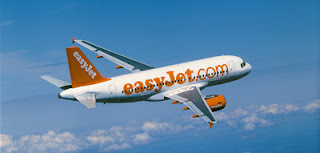EasyJet (U2) has reduced pre-tax losses for the half year ended March 31 by £41 million ($66 million) to £112 million, despite an £87 million increase in unit fuel costs. This represents an improvement of 26.8% from the £153 million recorded for the same period last year.
The airline said that careful allocation of capacity, revenue initiatives and tight control of costs, combined with exceptionally low levels of weather-related disruption, had contributed to the improving trend.
U2 CEO Carolyn McCall said the economic environment “remains uncertain,” but low fares “aligned with tight cost management and strictly managed allocation of capital” facilitated a return of £196 million to shareholders.
Revenue was up almost 16% to £1.46 million from £1.26 million for the same period last year. Passenger numbers for the six-month period were up 5.4% to 25.2 million, seats flown increased by 3.5% and load factor was up 1.5 percentage points to 86.9%. Total revenue per seat grew 11.9% to £50.47, driven by the full-year effect of fee changes implemented last year, improvements in revenue management and website enhancements.
Total cost per seat, excluding fuel, grew by 2.1% to £37.70 (7.4% to £54.34 including fuel). Fuel cost per seat increased 22% to £16.64. The exceptionally mild winter across Europe meant the number of cancellations and overnight delays was down almost 90% year-on-year, saving £15 million.
A “disciplined approach” to capacity kept the increase for the half-year to 3.5% compared to 11.1% last year, U2 said. Capacity, measured in seats flown, for the second half is expected to increase 7%, resulting in a full-year increase of around 5% over 2011.
U2 founder and largest shareholder Stelios Haji-Ioannou said: “My immediate reaction is to welcome this winter’s reduced losses. However, to keep things into perspective, a loss of £112m for the last six months is still no reason to pop champagne corks—particularly as improved revenue has been driven by higher fares rather than by cost control.”
He voiced concerns that the company “could be trading sideways,” and particularly highlighted “the excessive size of the fleet and the order book.”
Article Source : ATW Daily News

No comments:
Post a Comment